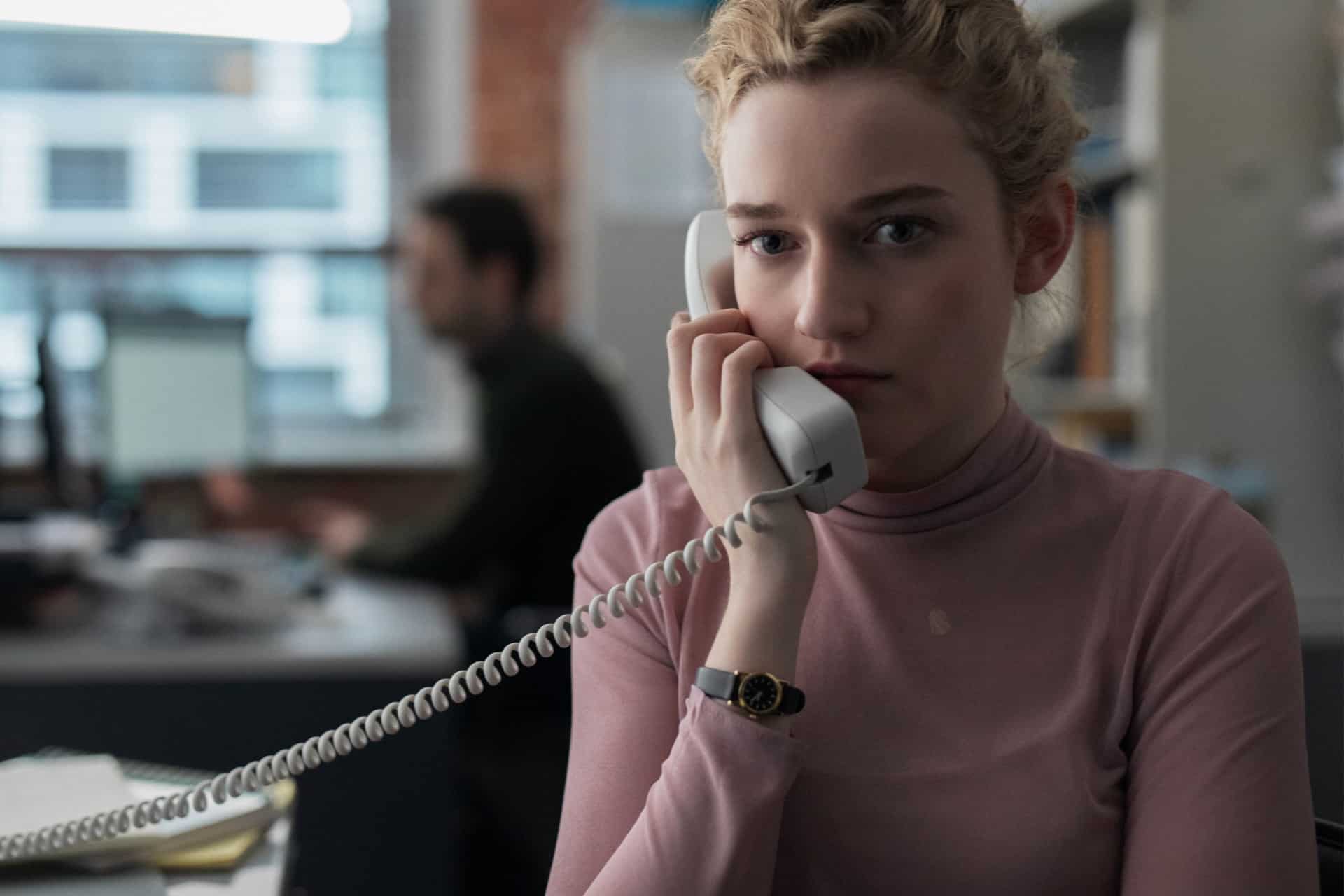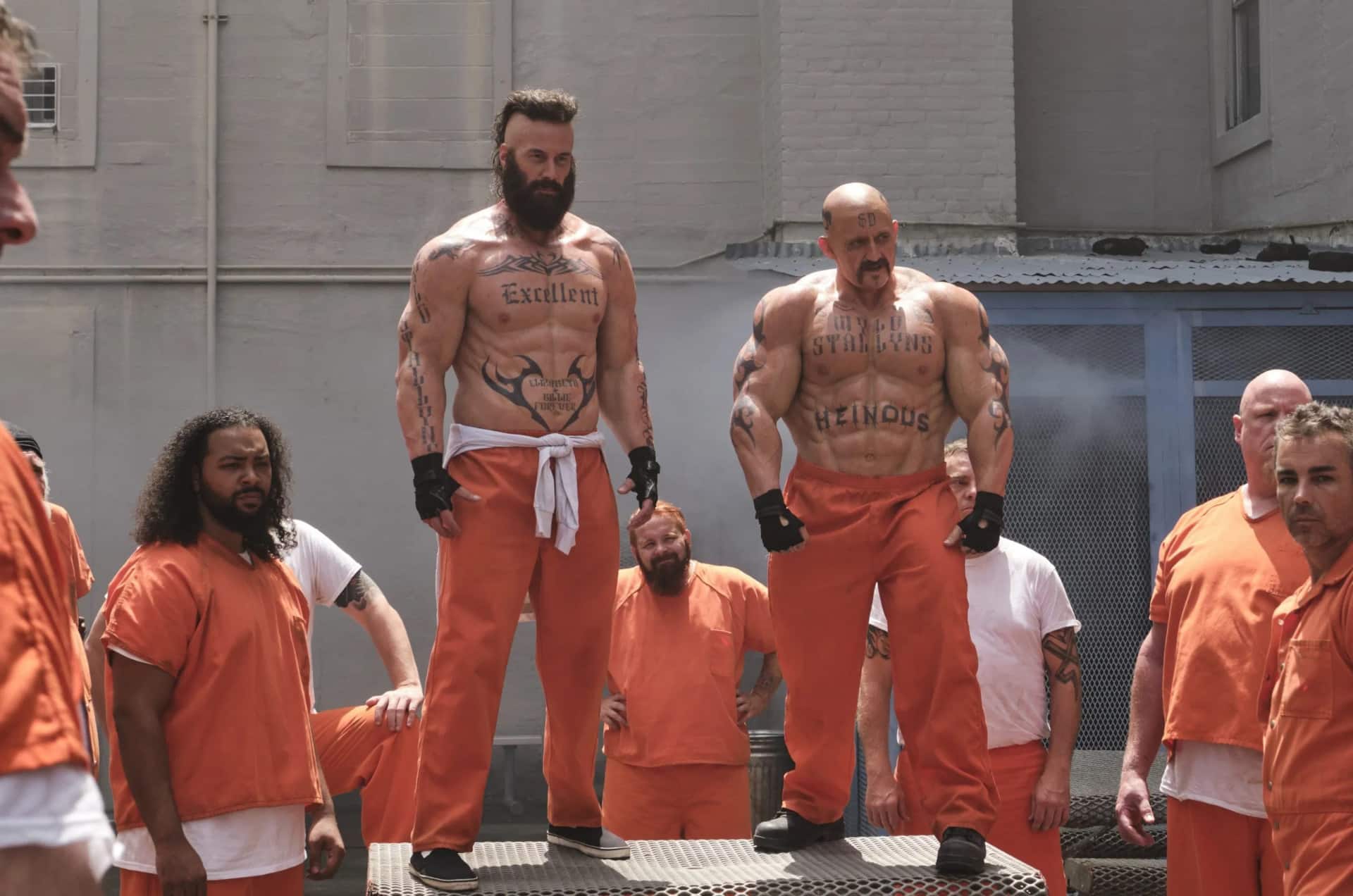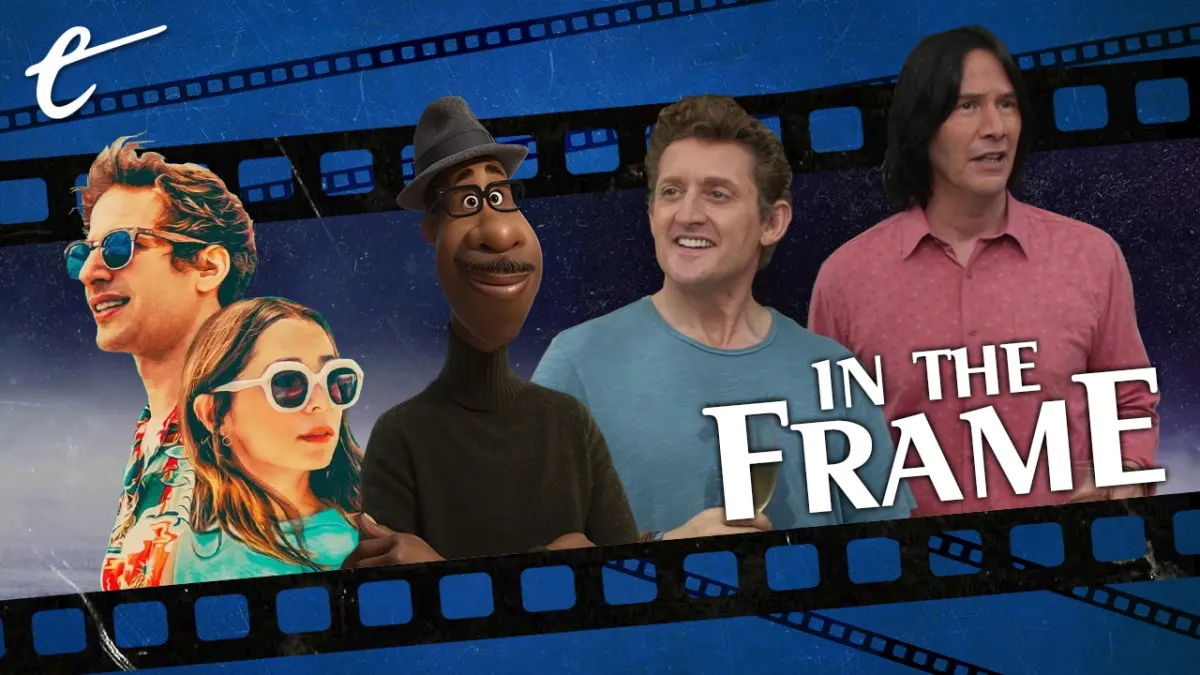Happy New Year! It’s hard to know whether we should be more excited that 2021 has begun or that 2020 is finally over.
2020 was a terrible year by absolutely any measure. Indeed, it was a year where talking about pop culture week in and week out felt almost completely irrelevant, given what was actually happening in the larger world. It was emotionally draining and physically exhausting. Of course, none of us are naïve enough to believe that the simple rolling of the clock on an arbitrary date will make everything better, but it does at least offer a symbolic new beginning.
Even within the narrow remit of this column, the past year has been a lot to deal with. Movies have been postponed seemingly indefinitely. The face of distribution has changed dramatically. The movie-going experience has been fundamentally altered. It’s hard to predict what the medium will look like even a year from now. Truth be told, in the gap between writing and releasing this piece, it’s possible that some Earth-shattering news will break. It is utter chaos.
Still, with 2020 in the rearview mirror, it’s worth pausing to acknowledge some silver lining on a year that has been almost entirely cloud. This is not a conventional top 10: Film distribution has been too erratic for that, with several of the best movies that I watched in February not seeing release until much later. For example, Promising Young Woman is great. However, it did not release theatrically in the United States until Christmas, and once more people have seen it, the internet discourse around it… may not be great.
2020 was famously the first year without a major Marvel Studios release since 2009, and outside of outliers like Mulan or Wonder Woman 1984, most of the major blockbusters retreated to the hypothetical safety of the next calendar year. Of course, this likely means that the next blockbuster season is going to a pile-up as blockbusters struggle for breathing room in an overcrowded marketplace. Who knows? Maybe In the Frame will go thrice weekly to keep up.

Indeed, one of the few pleasures of the year’s relatively light release schedule was the opportunity to revisit a host of classic movies — films I had not seen in years, if ever. Specialty streaming services like Criterion, MUBI, and Shudder were worth their weight in gold, offering libraries of oft-overlooked treasures like the remastered version of Roger Corman’s The Masque of the Red Death or Terence Fisher’s The Curse of Frankenstein.
The constant treadmill of new releases often prevents critics from digging into the medium’s history. Indeed, In the Frame was able to take advantage of the sparse release schedule to offer some nostalgic retrospectives of great films. Rewatching the filmographies of David Fincher and Martin Scorsese was a delight, as was finally having the time to check out recent home media releases of cult classics like Philip Kaufman’s Invasion of the Body Snatchers or William Peter Blatty’s Legion: The Exorcist III.
However, there have been great films released within the past year, and they are worthy of celebration. Tenet might not have managed to actually save cinema, but it served as a welcome reminder of the appeal of the scale and spectacle of blockbuster filmmaking and the ambition of director Christopher Nolan. However, with so few major titles competing for space, smaller films could flourish and garner attention that they might not otherwise receive.
In this context, The Personal History of David Copperfield has been the personal equivalent of a comfort blanket in these times. Armando Iannucci’s adaptation of Charles Dickens’ classic novel is a balm for the soul. It’s really funny, featuring a fantastic cast including Dev Patel, Hugh Laurie, Tilda Swinton, Peter Capaldi, Ben Whishaw, Benedict Wong, and Morfydd Clark. It also manages to condense Dickens’ meandering and epic fictional biography down to a coherent narrative.

More than that, it resonates differently in the context of the past year. At its core, it is a tale about how so much of an individual’s life is shaped and defined by the people around them, how any autobiography is written as through homage and reference. It is a story about unlikely connections in a cruel world and how sometimes empathy is enough. At a time when so many people are denied that human contact to protect the people that they love, the humanism of the story rings true.
On the other extreme, horror thrived in the pandemic. Even before the lockdowns, The Invisible Man was one of the strongest movies of the year, a clever and assured update of the classic monster for the 21st century. However, since cinemas have closed, there have really only been two genres assured a steady pipeline to release on streaming, with many family movies and horror films releasing on video on demand.
It makes sense that family movies would go straight to streaming. Parents locked at home are unlikely to be particularly discerning consumers while looking for something to keep the children entertained for a few hours. A lot of these films — like Trolls World Tour, The Witches, and Artemis Fowl — were not particularly good. That said, there were a few worthy titles that sneaked in under the radar, like Wolfwalkers on Apple TV+ or Soul on Disney+.
The explosion of horror cinema was something slightly more interesting. Irish horrors like Vivarium and Sea Fever seemed to tap into the isolation and cabin fever of the pandemic, making a minor splash on release in the United States. Appropriately enough, there was something of a property horror boom; Dave Franco’s The Rental updated Psycho for the Airbnb generation, while Remi Weekes’ His House suggested that the worst ghosts are the ones that move in with you.
Sometimes these horrors were novel twists on familiar templates; Jeff Barnaby’s Blood Quantum set a classic zombie movie against the backdrop of an indigenous population. Sometimes these horrors juxtaposed those existing templates with unexpected genres; Rose Glass’ Saint Maud offered an incredibly black comedic take on the classic exorcism story anchored in a tremendous pair of central performances from Morfydd Clark and Jennifer Ehle, while Kitty Green’s The Assistant was arguably the first great film of the #MeToo era built around a classic monster movie template.

Horror remained innovative and dynamic. Rob Savage’s Host was a nightmare for the Zoom age, shot entirely remotely while social distancing. Jim Cummings’ The Wolf of Snow Hollow was a creative collision of indie comedy and werewolf movie, along with a clever homage to The Silence of the Lambs. Natalie Erika James’ Relic was a welcome addition to what might be classified “prestige horror,” a haunting and nightmarish metaphor for the process of losing a relative to dementia.
These are terrifying times, and perhaps those movies reflected that fear through the glow of a television screen or laptop monitor. More cynically, horror movies are generally cheaper to produce and so land in the sweet spot of movies that studios can release on streaming and hope to turn a profit. As noted before, $70M appears to be the ideal budget of a streaming release, and horror movies are really the only films left operating in that space with the death of the mid-budget movie.
Streaming services launched their own equivalent of a blockbuster arms race. While it’s debatable whether it was really a film, Disney+’s Hamilton offered a fascinating attempt to recreate the communal theatrical experience at a time when everybody was watching alone. On Netflix, Spike Lee’s Da 5 Bloods offered both a timely companion piece to BlacKkKlansman and a celebration of the late Chadwick Boseman that feels more relevant in the months since his passing.
On Hulu, Palm Springs captured what it felt like to be living in an era where the flow of time was broken. This theme of broken time wove through many of the better movies of the summer and some of the worst. It was present in the temporal cold war of Tenet, the disorienting time skips of Charlie Kaufman’s I’m Thinking of Ending Things, the threat to “reality as we know it” and “the end of space and time” in Bill & Ted Face the Music, and the William Faulkner allusions in Antebellum.

Of course, these movies all were produced before the pandemic and could not have been constructed to reflect or comment on the particulars of the current moment. More likely than not, they reflected something deeper in the zeitgeist, perhaps echoing the re-litigation of history that played out in debates over monuments, flags, and nostalgia. Still, they resonated in the context of a year that was like no other in living memory.
It is possible to watch movies from a particular time period and get a flavor of that era on screen — the paranoia and anxiety of the 1970s or the excess and enthusiasm of the 1980s. It’s too early to say with any certainty what future audiences might take away from the cinema of 2020 and whether the year left an imprint on film. Still, it feels like a safe bet that, in cinema history as much as anything else, it will feel like a truly singular year.
A Totally Arbitrary List of Recommended Films from 2020 and Where to Find Them
- The Assistant (Hulu)
- Bad Education (HBO Max)
- Da 5 Bloods (Netflix)
- Hamilton (Disney+)
- His House (Netflix)
- I’m Thinking of Ending Things (Netflix)
- The Invisible Man (HBO Max)
- It Must Be Heaven (DVD/Blu Ray)
- Mank (Netflix)
- The Mystery of Henri Pick (Google Play, YouTube, etc.)
- On the Rocks (Apple TV+)
- Palm Springs (Hulu)
- The Personal History of David Copperfield (Movies Anywhere, Google Play, VUDU, Fandango, etc.)
- Promising Young Woman (Theaters)
- Relic (Spectrum)
- Saint Maud (TBD)
- Soul (Disney+)
- Tenet (Movies Anywhere, Google Play, VUDU, Fandango, etc.)
- Uncut Gems (Netflix)
- The Vast of Night (Amazon Prime)
- Vivarium (Amazon Prime)
- The Wolf of Snow Hollow (Movies Anywhere, Google Play, VUDU, Fandango, etc.)
- Wolfwalkers (Apple TV+)






Published: Jan 4, 2021 11:00 am